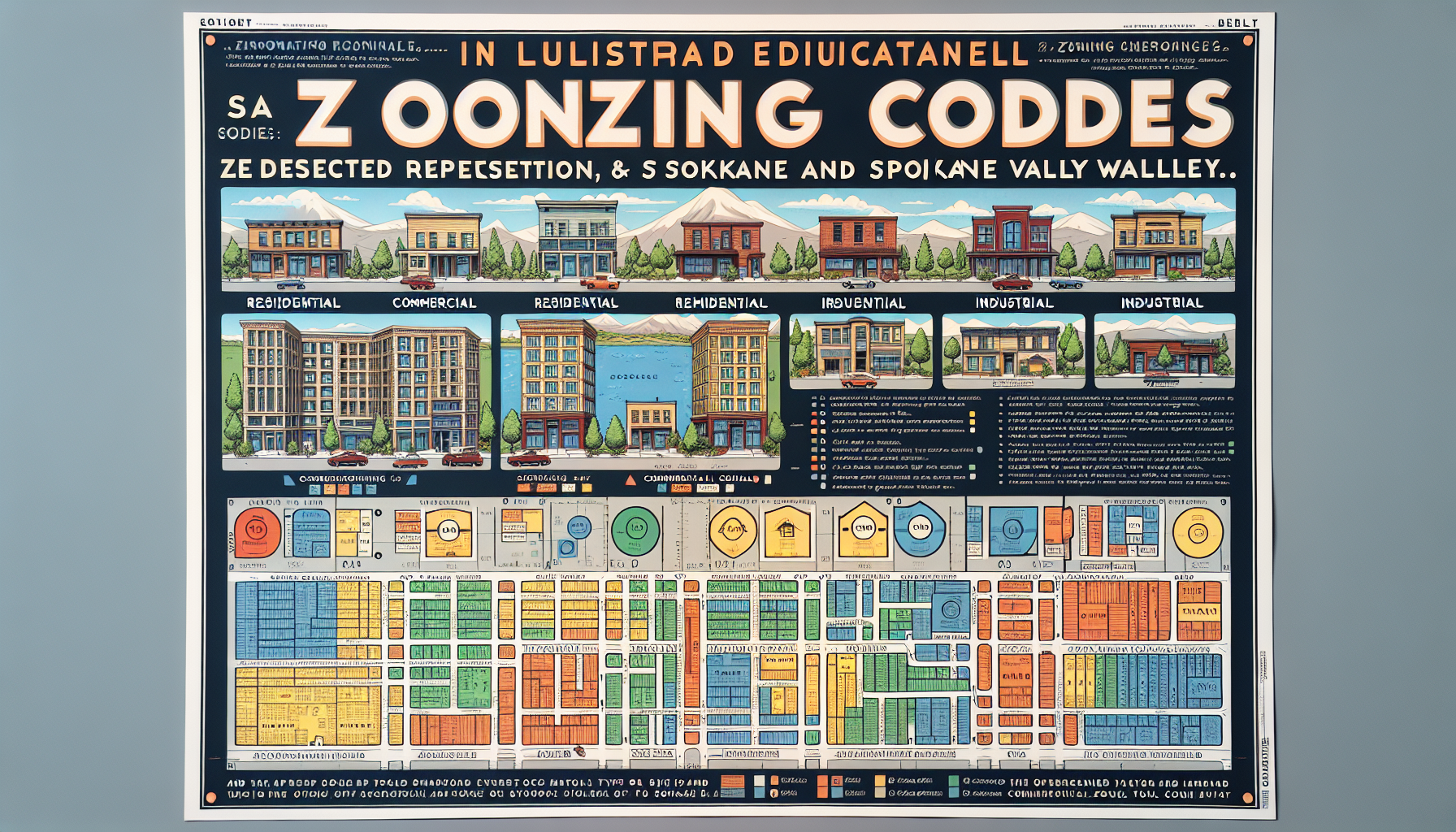
Introduction to Zoning Compliance
Zoning compliance plays a crucial role in land development and urban planning, ensuring that the use of land and buildings within a city is coordinated and orderly. In Spokane and Spokane Valley, WA, zoning regulations are established to divide the city into different areas, or zones, each with its own specific set of rules related to land use, building sizes, placement, density, and other development standards. Understanding these rules is essential for property owners, developers, and businesses to ensure their projects meet local laws and contribute positively to the community.
Navigating Spokane and Spokane Valley Zoning Codes
The zoning codes for Spokane and Spokane Valley are the primary tools for determining what activities may take place on a given parcel of land. These codes outline permissible land uses, such as residential, commercial, industrial, or mixed-use, and they include detailed criteria that vary from one zoning district to another. Before purchasing property or beginning development, it is critical to review the zoning designation for the parcel and understand the limitations and requirements that are associated with it.
The Importance of Zoning Compliance Permits
In Spokane and Spokane Valley, like in most municipalities, obtaining a zoning compliance permit is a key step in the development process. This document certifies that a proposed land use or construction project complies with the zoning ordinance. Failing to secure the necessary permits can result in costly penalties, legal issues, and project delays. It’s essential to approach the local planning department in the early phases of project planning to discuss your project and its compliance with zoning regulations.
Seeking Variances and Conditional Use Permits
Sometimes, a project may not align perfectly with existing zoning laws. In such cases, developers may apply for a variance or conditional use permit. A variance allows for modifications to the zoning requirements for a specific project, provided that certain criteria are met and the change does not negatively impact the neighborhood. Conditional use permits, on the other hand, allow a property to be used in a manner that is not normally permitted within the zoning code, under certain conditions that safeguard the public interest.
Impact of Noncompliance on Development
Ignoring or overlooking zoning compliance can have significant repercussions for development projects. Noncompliance can lead to a stop-work order, fines, and the need to alter or completely demolish nonconforming structures. It may also result in legal action from the city, impacting the developer’s reputation and future projects. Ensuring compliance from the outset is far less costly and time-consuming than addressing issues after they arise.
Community Involvement in Zoning Decisions
Community input is an important part of the zoning and development process in Spokane and Spokane Valley. Public hearings and community meetings allow residents the opportunity to voice their opinions on proposed zoning changes and development projects. Getting involved in these discussions can help shape the character and growth of the neighborhood. It also provides valuable insights and feedback that can inform planning decisions.
Working With Local Zoning Authorities
Building a good working relationship with local zoning authorities is advantageous for navigating the complexities of zoning compliance. Planners and officials can provide guidance, interpretation of the zoning code, and advice on how to handle any compliance issues. They are the best resource for up-to-date information on zoning laws, amendments, and application processes.
Conclusion
Zoning compliance in Spokane and Spokane Valley is essential for sustainable urban development and maintaining the quality of life for residents. By understanding and adhering to zoning regulations, developers can avoid legal complications, minimize delays, and contribute to the orderly growth of the community. Whether considering a new construction project or the purchase of property, always consult with zoning experts and local authorities to ensure compliance and success in your real estate endeavors.







